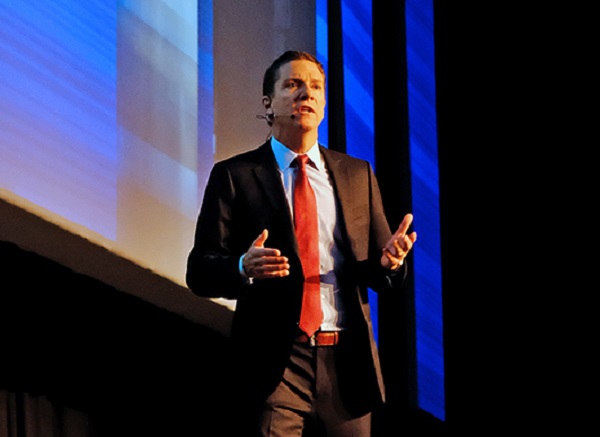Business culture biggest hurdle to digital transformation
Business culture biggest hurdle to digital transformation

To drive innovation at scale, adapt to a continuously changing environment and digitally transform, businesses must 'shape, shift and share' as the basis of what Gartner calls 'the continuous next' strategy.
At the 2018 Gartner Symposium ITXPO in Cape Town, South Africa, the company underlined the importance of skills, digital security and AI among a host of trends impacting businesses in the midst of digital transformation.
"Why continuous next? and why now?" asked Mike Harris, EVP, Research at Gartner. "Because the transition to digital is undeniable and it's only accelerating, disrupting government and business models. Those new models redefine how organisations create, deliver and capture value. Two-thirds of CEOs and CFOs anticipate business model change frequently due to digital transformation."
The creative use of technology equates to competitive advantage he added. "The strongest determinant of success is dynamism ... your ability to embrace change and adopt technology in a new way. We've seen many organisations become increasingly dynamic. We've learned that top performers differentiate by unique applications of technology, they shape their organisation's stance on technology adoption, they shift to innovative uses of technology and then they share their success," said Harris.
Digital transformation is happening. The company predicts that by 2023, 50% of major enterprises will use digital twins of the organisation in combination with digital business platforms. Moreover, 2022 60% of effort in AI development will be spent on machine training focused on business users' modelling concepts rather than data scientists developing models.
Middle East and North Africa IT spending is projected to reach US$155 billion in 2018, a 3.4% increase from 2017.
Business impact
However, the impact on business culture is identified as one of the most significant challenges to this transformation. 46% of CIOs reported culture as their biggest barrier, Gartner stated.
The role of AI and application in business is a good example. While global business value derived from AI is projected to total US$1.2 trillion in 2018, an increase of 70% from 2017, businesses have to realise there are risks and a measured approach is called for.
In companies that have not used AI, employees believe it will eliminate jobs. According to Gartner, in these companies, 77% of employees believe AI will decrease jobs, while 23% believe the technology will increase jobs.
Highly stressed employees result in 9.1% reduced productivity, the company stated.
Other challenges to transformation and specifically the top barriers to achieving CIO objectives included insufficient resources (42%), business blocks change (36%), lack of digital skills (33%) and lack of funding for digital (29%).
The company advocates 'hacking the culture' as a means of guiding the businesses through the process of change and altering the mindset.
In her presentation Research Vice President and Analyst in Gartner's Strategy, Innovation and CIO Role Kristin Moyer said culture (or the mindsets or practices that shape behaviour) needn't be a barrier.
"What if you found a weak point in your culture and you could turn it into real change. Hacking your culture is just what you need to finally make that behaviour change stick," said Moyer.
Regional Vice President, Sales, South Africa Paul Morrison said despite the volatile socio-economic climate (exacerbated by a change in the country's leadership, on-going fallout from the state-capture scandal, a technical recession and Moody's having slashed the growth forecast for SA for 2018), there is a clear opportunity for businesses.
"You know and your organisations know that to overcome the challenges, you need technology. To deliver better public services at lower cost, to grow your business out of the recession, to optimise costs so that you can reinvest in frontline services and other growth opportunities – and to reduce unemployment and equip our young people with the skills they need to thrive in the 21st century. The key to all of that is technology," said Morrison.
